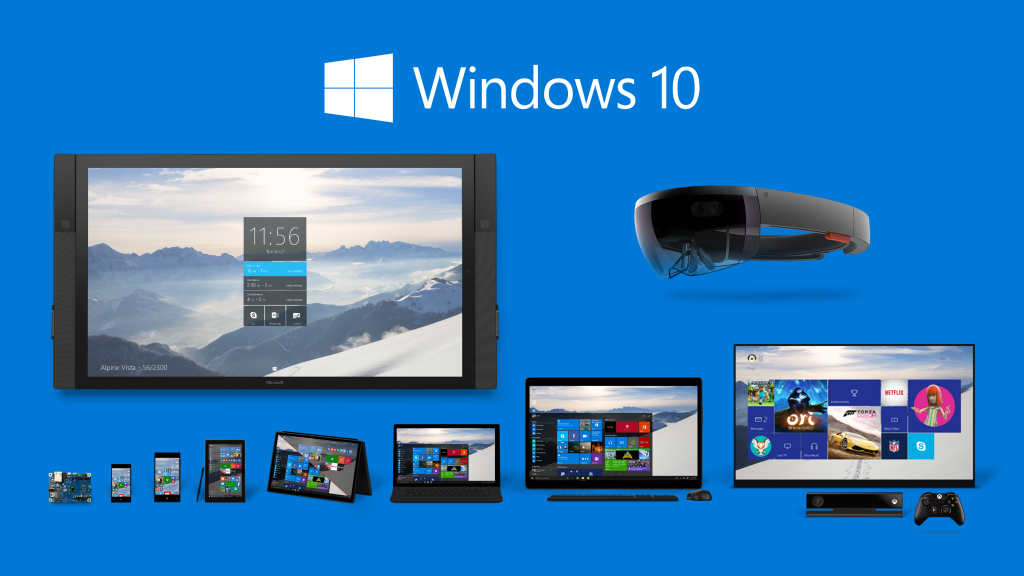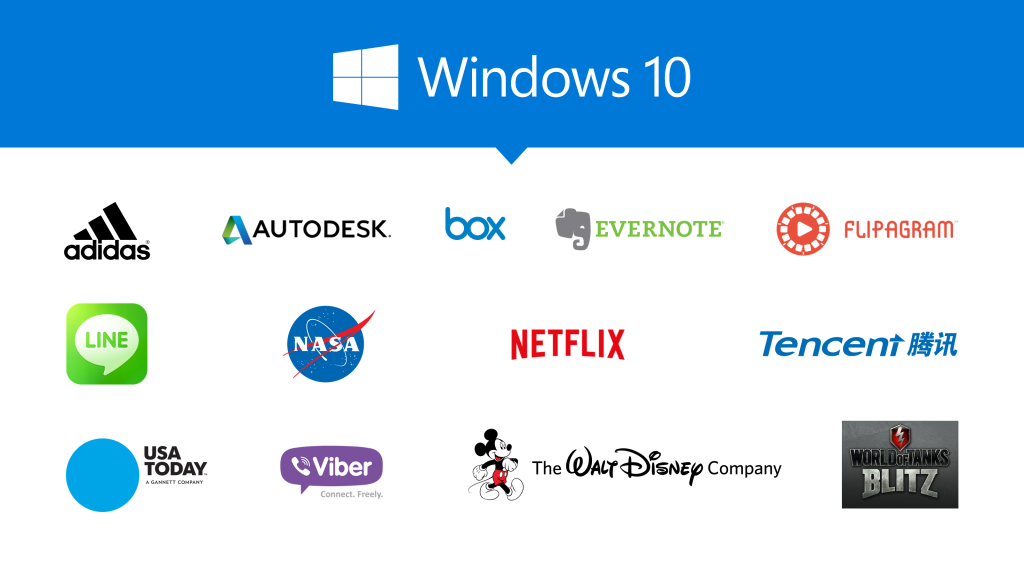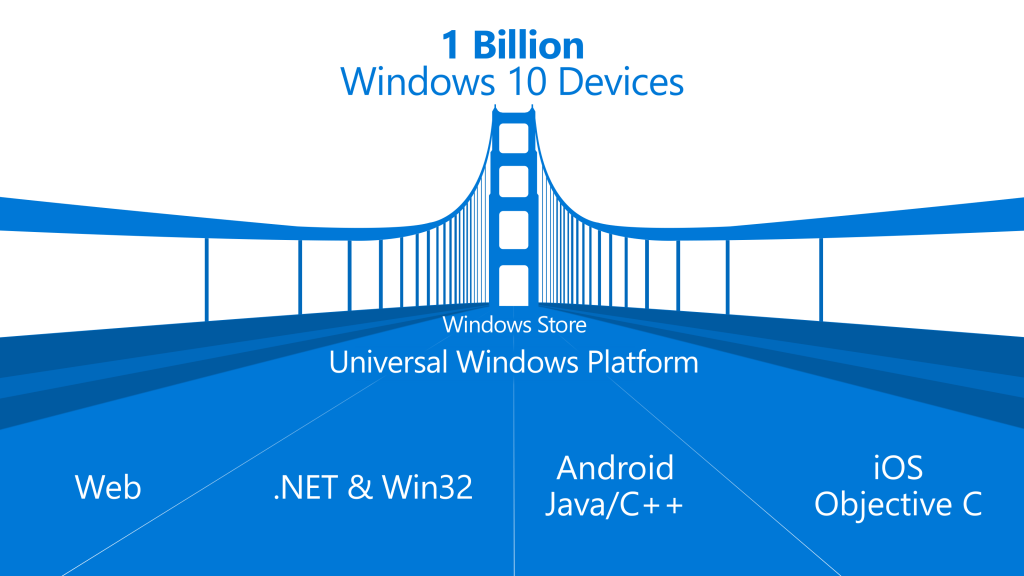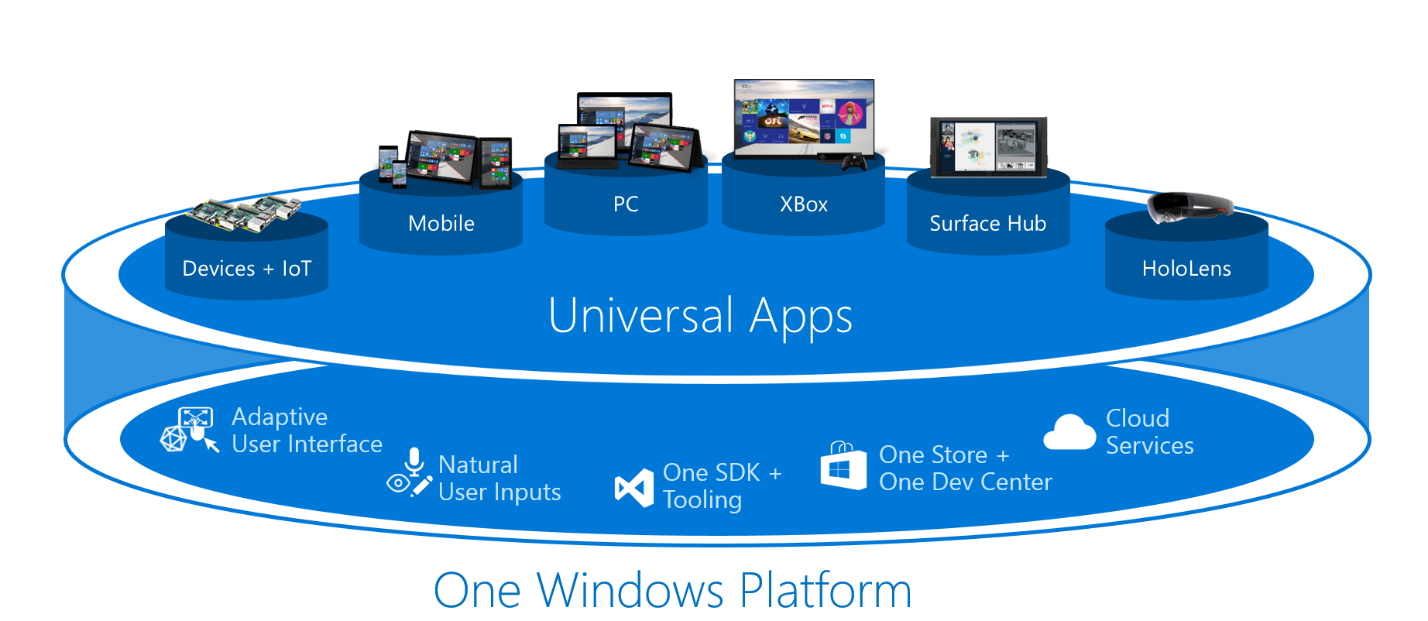[Most of the stuff below is available on blog.windows.com in full, of course, plus there's the recorded keynote in video form here.]
In brief, to save you wading through it all though, here are the takeways.
- Microsoft aims 'to see Windows 10 on one billion devices within two to three years of Windows 10’s availability – the first platform version, in any ecosystem, to be available on one billion devices'. Some careful wording there, since Android OS got to one billion a while ago, but considering this encompasses all form factors and is for one specific common version, it's an admirable aim.

- The Windows Store will offer, to end-users, businesses, and developers, write-once, run anywhere applications, 'a range of global payment methods' (including carrier billing with 90 networks) and an 'Affiliate Program' for sites and blogs linking in.
- Continuum was announced, letting new premium phones (yet to be announced) plug into HDMI-capable screens, hook up to Bluetooth keyboard and mouse, to run their applications at full desktop resolution. The video embedded below shows this off well:
- Plenty of big name partners were demonstrated, running universal applications for phone, tablet and desktop, including USA Today, WeChat, Disney, Netflix, and King.

- Microsoft's development environment, Visual Studio, now supports .NET, Win32, Android Java/C++ and iOS Objective C, letting existing apps on the latter two platforms be recompiled ('Project Astoria' and 'Project Islandwood', respectively) and extended to become fully fledged Windows applications. So you won't be browsing the Google Play Store or using Play Services on a Windows phone or other device, but you will see some Android applications recompiled, otherwise tweaked and submitted to the main Windows Store.
- Microsoft's new browser, codenamed Project Spartan, has been revealed as Microsoft Edge. The name 'reflects our commitment to developers to deliver a browser that lives at the edge of modern web standards and security'. Well, that's the official line - rather self evident is that the new name also starts with 'e', enabling its icon to be almost identical to the blue 'e' used currently for 'Internet Explorer' on all of Microsoft's devices. So users won't be scratching their heads wondering where the web browser is. Pity though, I rather liked 'Spartan' as a name.
- Albert from the Design team has been writing about the challenges of designing UIs across form factors and platforms. "Our design approach is evolving from our rich history in transportation graphics and the International Typographic Style. Today we’re moving toward an approach that is somewhat like designing a city. We’re creating a foundation, or a common grid, that maintains the order and standards that make a city work, yet also has flexibility that enables expression and a distinct sense of place." He goes on to talk about "more flexible global controls and to create an 'adaptive UX'... We can use a hamburger icon without pivots on a PC version of the app for better keyboard and mouse navigation and then customize the same app to have pivots with swipe control for better one-hand-use on mobile. We’re making it possible for an app to have both hamburger and pivot controls—but to display the right control at the right time on the right device." Thankfully, requests for common actions to remain on a bottom toolbar seem to have been heard. Hopefully everyone will be happy enough at the final applications and experience.
- Microsoft revealed that Windows and Windows Phone users will soon be able to developer-unlock their devices with a simple toggle, allowing them to side-load apps that have not been approved. There's a slight risk of piracy, but a hard limit of 20 applications per device at least puts a cap on any such effort.
_________________
Comments welcome on any of the above. We'll be discussing all of this in the podcast and, no doubt, in future editorials.


